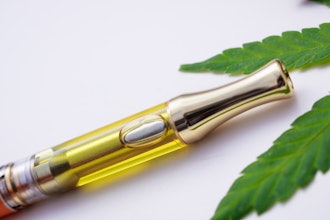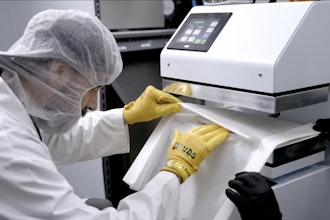
Cronos Group released a Sustainability Study that outlines the benefits of using fermentation manufacturing methods for cannabinoid production over the impact of traditional methods of cannabis extraction, which use indoor cultivation methods.
The third-party reviewed results showed that the environmental footprint of growing plants indoors is high and using innovative fermentation processes is a solution that dramatically lowers the environmental impact of cannabinoid production. On average, the carbon footprint savings of using Cronos’ fermentation method is 99.8% when compared to traditional extraction methods.
Cronos’ brand platform features rare cannabinoids in a wide range of product formats. The company has launched CBC and CBG-focused adult products under its Spinach FEELZ brand platform, both products are made using Cronos’ proprietary sustainable fermentation methods. Each product is designed to deliver unique and enhanced experiences made possible through proprietary blends of rare cannabinoids alongside more common cannabinoids, like THC and CBD.
“While our industry is young, it’s never too early to lead and invest in technology that helps contribute to a greener future,” said Mike Gorenstein, President, Chairman, and Chief Executive Officer, Cronos. “By pioneering new technologies that produce rare cannabinoids using fermentation, we are not only creating a viable path to harnessing the full power of cannabinoids, but also, we are creating a sustainable process. We’re thrilled to be using this technology to create innovative products under our Spinach FEELZ brand, which brings exciting, differentiated, and sustainable cannabinoid products to consumers.”
Key Highlights
- On average, the carbon footprint savings of using Cronos’ fermentation method is 99.8% when compared to traditional extraction methods.
- Fermentation methods reduce up to 99% of environmental harm from conventional production across all metrics.
- Cronos’ fermentation methods eliminate plant cannabis byproduct at the outset, which helps to dramatically reduce overall carbon and water usage.
“With this study, we have clearly outlined how our techniques and innovations in production can lead the way for a more sustainable industry,” said Anna Shlimak, Senior Vice President, Corporate Affairs and Strategy, Cronos. “As the cannabis industry develops, the need for a more sustainable way to produce cannabinoids, including rare cannabinoids, is vital. We call upon our industry stakeholders to make room for these sustainable methods as we look to co-create regulations and protections for the emerging cannabis industry.”
To view the full study, please visit https://thecronosgroup.com/responsibility or download a fact sheet PDF here






















